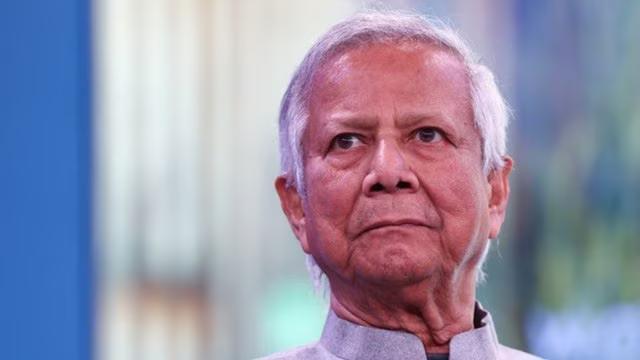
Muhammad Yunus Rules Out Contesting 2026 Bangladesh Elections
Bangladesh is on the cusp of a significant transformation, with the country set to hold its first national election since the ouster of ex-Prime Minister Sheikh Hasina. The news has sent shockwaves throughout the political landscape, with various leaders and parties scrambling to prepare for the upcoming polls. Amidst the chaos, one notable figure has ruled out his participation in the election – Muhammad Yunus, the interim government leader.
In August last year, Yunus was appointed to lead the interim government, a move that raised eyebrows among many political observers. As a Nobel Peace Prize laureate, Yunus has long been recognized for his tireless efforts in promoting economic and social development, particularly through his work with the Grameen Bank. His appointment to the interim government sparked hopes that he might bring a fresh perspective to Bangladesh’s political landscape.
However, in a recent statement, Yunus has categorically ruled out his participation in the 2026 general elections. According to reports, Yunus has stated that he will not contest the election, citing his age and the need to focus on his other humanitarian initiatives.
Yunus’ decision to bow out of the election has sent ripples throughout the political spectrum. His absence will undoubtedly be felt, as he has been seen as a unifying figure capable of bridging the gap between different political factions. His experience and expertise would have undoubtedly been valuable in shaping the country’s future.
As the country prepares for the election, the political landscape is becoming increasingly complex. With various factions vying for power, the stakes are high, and the outcome is far from certain. The election will be a crucial test of Bangladesh’s democratic institutions, and there are concerns that the process may be marred by violence, intimidation, and other forms of electoral malpractice.
In recent years, Bangladesh has faced a number of challenges, including political instability, economic stagnation, and social unrest. The country has also struggled to address issues related to human rights, freedom of speech, and the rule of law. The upcoming election presents an opportunity for the country to take a critical step towards addressing these challenges and building a more stable, prosperous, and democratic future.
In the absence of Yunus, other leaders will need to step up and play a more prominent role in shaping the country’s future. The election will be a litmus test for Bangladesh’s political leaders, and there are many who will be watching with bated breath as the country navigates this critical moment in its history.
As the election approaches, there are many questions on the minds of Bangladesh’s citizens. What kind of leadership will emerge in the aftermath of the election? Will the country be able to build on the progress made in recent years, or will it continue to struggle with the same challenges that have plagued it for so long?
The answers to these questions will only become clear in the days and weeks that follow the election. For now, one thing is certain – the stakes are high, and the outcome is far from certain. As Bangladesh’s citizens prepare to cast their ballots, they will be hoping for a peaceful, fair, and transparent process that will allow them to shape the country’s future.



